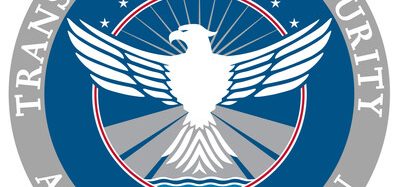Aviation emissions should be included in net zero 2050 target
- Like
- Digg
- Del
- Tumblr
- VKontakte
- Buffer
- Love This
- Odnoklassniki
- Meneame
- Blogger
- Amazon
- Yahoo Mail
- Gmail
- AOL
- Newsvine
- HackerNews
- Evernote
- MySpace
- Mail.ru
- Viadeo
- Line
- Comments
- Yummly
- SMS
- Viber
- Telegram
- Subscribe
- Skype
- Facebook Messenger
- Kakao
- LiveJournal
- Yammer
- Edgar
- Fintel
- Mix
- Instapaper
- Copy Link
Posted: 26 September 2019 | International Airport Review | No comments yet
The CCC looks at how to bring IAS emissions formally within the UK’s net-zero target, setting out the rationale and the implications for the UK’s climate strategy.


The Committee on Climate Change has addressed the need for international aviation and shipping (IAS) emissions to be formally included in the UK’s target of net zero greenhouse emissions by 2050.
In a letter to the Secretary of State, Lord Deben, Chairman of the Committee on Climate Change (CCC), sets out how this could be achieved.
With aviation likely to be the largest emitting sector in the UK by 2050, it’s inclusion within the net zero target is not only important, but sends a strong message that the Government is making IAS emissions a priority.
The CCC states that agreements already made on an international level should form the primary approach. The International Civil Aviation Organisation has already established a global offsetting scheme for aviation emissions to 2035 under the CORSIA agreement.
Chairman of Sustainable Aviation, Neil Robinson, responded by highlighting the need for international cooperation if the target is to be achieved:
“Carbon reduction is a global issue requiring a global response, with governments and industry working closely together, and for emissions to be managed within an international framework. If the UK climate ambition is not matched elsewhere, the global market would be distorted with carbon emissions simply exported to other countries, which would be bad for the environment and bad for British travellers.”
However, the CCC notes that this international framing should not prevent the inclusion of IAS emissions in UK carbon targets and would in-fact complement agreed international policies.
Achieving net-zero emissions by 2050 will require reducing emissions and some use of greenhouse gas removals (GGRs) to offset remaining emissions. It must be remembered, however, that GGRs are limited in their use and certainly not a substitute for genuine emissions reductions.
While zero-carbon aviation is unlikely by 2050, the CCC advises emissions could be reduced by around 20% by 2050, through improvements to fuel efficiency, some use of sustainable biofuels, and by limiting growth to at most 25% above current levels.
Industry figures have reacted to aviation’s inclusion in the targets, largely welcoming the challenge.
John Holland-Kaye, Chief Executive at Heathrow, stated:
“We welcome the recommendation to include aviation in the UK’s net zero emissions target by 2050, and the call on the Government to introduce policies that avoid competitive distortion. Heathrow will work with industry partners and the Government to ensure the UK leads the way in the development of sustainable fuels and continues to benefit from a thriving aviation sector while driving towards net zero emissions.”
Related topics
Emissions, Regulation and Legislation, Sustainability, Sustainable development
Related airports
Related organisations
International Civil Aviation Organization (ICAO), Sustainable Aviation


















